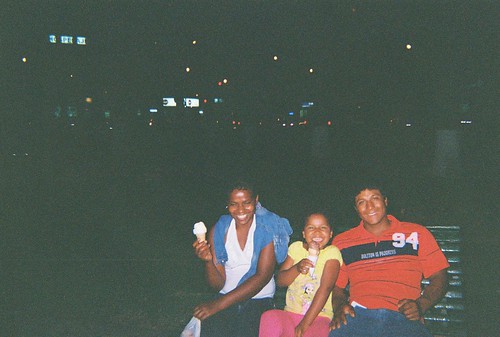I was recently in a pizza parlor near my house in Oakland, CA, staffed by mostly Spanish-speaking employees. As I was eating at a table, a gentleman walked in and got into a Spanish-speaking conversation with one of the female staff members. He kept emphatically asking her ¿tu los conoces? (Do you know them?). After eating and as I began to leave the facility, I couldn't resist saying to the gentleman, yo los conozco tambien! (I know them too). First he looked at me stunned and was about to take me seriously before he burst out laughing realizing that I was just playing with his mind. He asked me where I was from; I told him New York City. He then began to compliment me on my Spanish.
I've always found it irresistible to play with the minds of Spanish-speakers who assume, because of my color, that I don't speak or understand their language. A lot of native Spanish-speakers, especially Mexicans and Mexican-Americans, seem to assume that there are no black folks who can speak, or at least learn Spanish.
I'll never forget the time at a company-wide staff meeting where it was brought out that I work with Spanish as well as English speakers. One Spanish-speaking woman who did not believe I could speak Spanish demanded in a feisty tone of voice that I sing a song in Spanish, which she seemed to have felt would have been an impossible task. I happily sang a few lines and a chorus from my all-time favorite salsa song, Pastorita tiene gurararé, which invoked a nice, hearty applause from all the Spanish speakers, including this feisty woman. She was both shocked and impressed.
Why did it take all of that song-and-dance to convince her? Why did she make an off-handed assumption,considering that she doesn't know anything about me? I asked her these questions and she lied telling me that she didn't know why. In other words, she did not want to admit that she was judging me by the color of my skin.
The interesting thing is that I never experience such doubt and astonishment when I'm visiting Spanish-Speaking countries; only here in the United States of America. Why?













